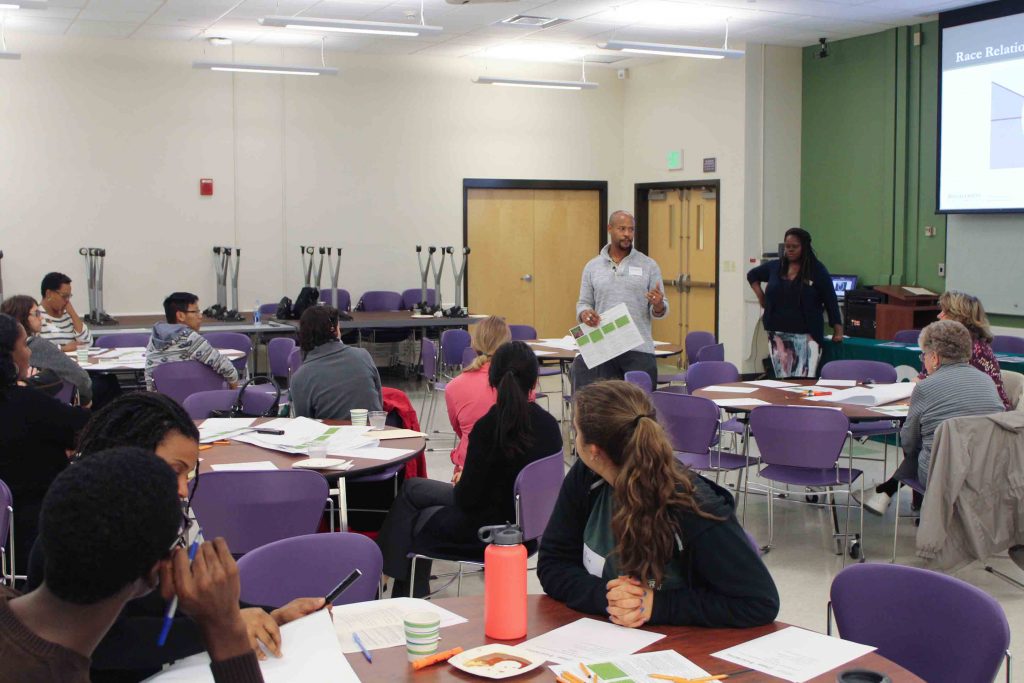
In an attempt to identify and analyze race-related issues at Binghamton University, three administrative organizations hosted over 30 students and faculty in the Old University Union on Thursday night to discuss race relations in higher education.
The public deliberation, titled “The State of Race at Binghamton University,” was a collaborative effort by the Division of Diversity, Equity and Inclusion (DEI), the Office of the Dean of Students and SUNY Broome’s President’s Task Force, who sought to further understand and publicize the issues of racism and incivility which have plagued college campuses in recent years.
In her introduction to the program, Lea Webb, event organizer and DEI diversity specialist, explained why she believes addressing racism and incivility in higher learning environments to be so important.
“There are a number of things happening nationally and locally in regard to race, so one of the purposes of the conversation tonight is to really find a space for us as a campus to talk about some of those challenges around race relations as it relates to racism and its impacts, solutions and drawbacks,” Webb said.
After the introductions, a video from the site Democracy Now! was played for attendees, displaying instances of racism and bigotry across college campuses. One example shown took place last November at Ithaca College, in which thousands of faculty, students and staff staged a walkout calling for the resignation of college president Tom Rochon in response to his inaction following two white male alumni repeatedly calling an African American graduate student a “savage.”
Following the video, participants were broken up into groups to discuss the issue of racism in greater detail. The discussion was led by analyzing racism from different perspectives, including through statements such as “racism has a negative psychosocial impact on the university community.” This topic aimed to demonstrate how studies have shown that hostility toward minorities on campuses is often psychologically damaging, affecting academic performance.
Kelly Clark, the director of the LGBTQ Center, said that college environments are meant to be places of learning and fairness for every individual.
“It’s essential that people realize and understand that a university is a place of openness,” Clark said. “It should be safe for everyone.”
Zoe Shannon, a freshman majoring in philosophy, politics and law, contributed to the discussion by recounting her own understanding of race relations. She explained why it’s important to hold programs that identify and publicize the issues of racism.
“Deliberations allow one to hear the different perspectives on race relations, and that’s a vital step in enabling others to better understand the issue of race,” Shannon said. “I think that if people are able to better understand certain issues and hear more perspectives about it, they’re more likely to be sympathetic towards that issue.”
Adina Matos, a senior double-majoring in political science and sociology, said she believed the event was effective, namely in its structure as a public deliberation over a more traditional setting.
“People actually talk and say what they feel,” Matos said. “I like the small dialogue better because the cultural competency trainings would be a big row of chairs and everyone would be shouting out things. This is more of an intimate setting. I like this better because I feel more comfortable speaking and saying what I feel, and that can make for a more efficient and practical program for everyone.”


